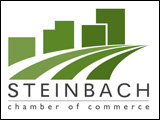I have a message for every farmer in Manitoba, no matter what crop they grow or type of animals under their care – now is the time to engage with all local candidates. Governance matters. On October 3rd Manitobans will elect 57 Members of the Legislative Assembly. Every one of them will influence, for good or bad, the regulatory environment farmers face.
Manitoba’s agriculture sector has a fantastic story to share with these politicians, and farmers need to tell it. Both urban and rural communities in Manitoba are thriving because of investments made by farmers, value-added processors, and input suppliers. Since 2017 Manitoba has seen over $200 million invested in new hog barns and barn renovations. In the last two years Maple Leaf Foods has invested $182 million to expand its processing in Winnipeg and Topigs Norsvin built a $35 million facility outside Plumas. Last month Winkler Meats announced a partnership that will invest $52 million to expand its facility. These investments drive necessary infrastructure developments across the province, like new hospitals, new community centres, new schools, and new roads.
Agriculture is a driver of Manitoba’s economy, with the pork sector alone accounting for 22,000 jobs and $2.3 billion in GDP. Annually, the sector delivers $139 million to the provincial tax coffers and $87 million in taxes to municipal governments. This is on top of the contributions made by sectors like canola, cereal crops, pulses, potatoes, bison, dairy, chickens, turkeys, and more.
How can farmers engage? The most important way is by talking to local candidates. This means the candidates from all parties, not just the one who is favored to win. Candidates regularly talk to their central campaigns, identifying the issues that their constituents are raising. Just think of the influence agriculture would have if each of the major parties had multiple candidates indicating that constituents were talking about the positive contributions of modern agriculture?
It should not be assumed that candidates understand the importance of agriculture, even in rural constituencies. Engagement by farmers, who tell the story of modern agriculture, will help to drive candidates to openly acknowledge the significant role agriculture plays in the culture of communities and the economy of our province.
What agricultural issues should farmers consider raising? My first “ask” is to push candidates to avoid taking policy positions or supporting regulations that are based on the latest social media trends rather than sound science. Social media can be driven by activists who want to end modern agriculture. They will never be satisfied until agriculture is limited to the tools and practices of the 1950s. This result would be harmful to our environment, detrimental to our communities, our economy, and unsustainable for farmers.
The alternative is animal care regulations, environmental guidelines, and best management practices that follow peer reviewed scientific research and are adopted in consensus with farmers, not in opposition to them. Political parties and their candidates should be committing to this better way – science and consensus vs. emotion and loud voices.
Farmers might also ask candidates how they will work with the agricultural community to deepen consumers’ understanding of the sustainability of modern agricultural practices. Modern agriculture is delivering on the commitment of continuous environmental improvement. For example, today’s hog farms require 40 percent less water, 59 percent less land, and emit 35 percent less greenhouse gases than 50 years ago. Advances in barn design are cutting the energy needed to heat and cool barns. Electronic feeders and advanced watering systems are reducing feed and water waste. Other livestock and grain producers are on a similar path of continuous improvement. However, this good news story is not well understood by consumers. This lack of understanding helps fuel activist campaigns that target agriculture. Political leaders, in partnership with farmers, can help bridge this gap. To start a discussion, farmers could ask their candidates if they will enhance support for programs like Agriculture in the Classroom – Manitoba and the Bruce D. Campbell Farm and Food Discovery Centre.
Perhaps the most important question for candidates is “do they support agriculture and its people?” I am confident that when they know more of agriculture’s positive story they will give this support, and that when candidates and parties know and understand the value of agriculture, good public policy will follow. And finally, don’t forget to vote on October 3rd.



